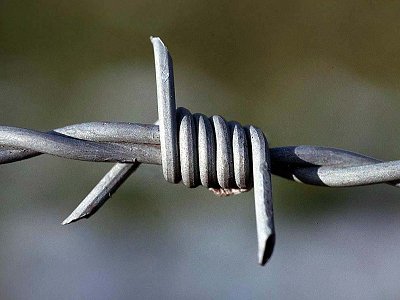
STRANGER DANGER
When a society no longer believes in a tradition which calls it to love the alien, what exactly guides it?
It is hard to get your head round the statistics, to make sense of them, never mind to show some empathy. The number of global refugees and internally displaced persons (IDPs) now stands at 65 million. Half of these are children. This is more people than live in the UK itself. People on the run. If they are lucky, under a canvass in a refugee camp, though even here there are great privations and threats of violence. The rest are possibly the most vulnerable people in the world.
The refugee crisis following the ending of the Second World War was severe, but took place largely on a continent that had exhausted war and had the inherent capacity to re-build. Today’s crisis is more complicated and intractable. Significantly, over half of all refugees are sourced from three countries: Syria, Afghanistan and Somalia. And Syria is head and shoulders above the rest; the ravaged population of a major Arab state.
Unlike post-war Europe, the thirst for death and destruction is unquenched in Syria, a function of the way the Assad family and Putin’s Russia have crushed civilian populations before. Much comment has been made of the levelling of Grozny in Chechnya. Less has been said about the utter demolition of Hama by Hafez al Assad’s troops in 1982, where twenty thousand people were killed in the putting down of a Muslim Brotherhood insurrection. Both add up to the current strategy of razing to the ground those rebels and communities who fight and will not flee.
All three countries afford the defining international policy question of our time: to intervene or not to intervene. The western intervention in Afghanistan, initially to find Osama bin Laden and destroy his training camps, has failed to deal with the Taliban, which is expanding monthly; Islamic State has also established a presence. The population is at risk from militant groups and Afghan security forces. A growing number of Afghans are among those making the perilous journey across the Mediterranean.
In Somalia, the failed US led initiative in 1993 made the Clinton administration wary of further intervention globally – a decision which probably helped to make the Rwandan genocide possible. Over one million Somalis have sought refuge abroad; a similar number are displaced internally and the population is at risk from the Islamist group, Al-Shabaab.
Both Afghanistan and Somalia demonstrate bitterly just how long some conflicts can last; grievous evidence in support of a prolonged conflict in Syria. Obama’s policy has been one of non-intervention, in keeping with his stance as a Senator over the invasion of Iraq. Sometimes the truth is too painful to admit: intervention and non-intervention are both fraught with danger, unlikely to fulfil stated aims and certain to produce unforeseen and unintended consequences. But this is no argument for passivity.
Among steps which might be taken are greatly increased support for front line states, those which take a huge proportion of refugees, who are not equipped to handle them and are also at risk of instability from the sheer numbers and profiles of refugees seeking assistance. Lebanon should be a primary concern. A country ravaged by civil war and comprised of different, wary ethnic and religious groups has offered shelter to over a million Syrians, more than 20% of its own population. Imagine over 12 million people coming to live in the UK since the Syrian civil war began. Now imagine the English, Scots, Welsh and Irish had recently come out of a civil war of their own, to which the refugees had their own allegiances. It makes some of the rhetoric surrounding immigrants in the UK and European Union more widely look shrill, unjustified - perhaps immoral.
The response we usually make is to shrug our shoulders and say it is so complicated that there are no easy answers. This is true. But in the UK we haven’t even held an honest conversation about the vision and values we hold as a society. Yes, the terminology around immigrants, asylum seekers, refugees and economic migrants is a complex one. Words easily and sometimes unhelpfully blur into one another, but principles can be more quickly understood.
The Christian tradition, rooted in Jewish scripture, is one of hospitality to the stranger. The Israelite experience of Egyptian slavery informs our thinking: ‘Do not oppress an alien; you yourselves know how it feels to be aliens, because you were aliens in Egypt (Exodus 23:9). But what happens when we no longer own this guidance, because we no longer see ourselves together as in some way Christian? What takes the place of the Bible then? There are no clear answers to this. One effect is for the indigent British population to make no effort to assimilate new communities because it does not agree anymore on the values that make it British. Uneasy co-existence is a recipe for insecurity and mistrust.
The pithy concept, Stranger Danger was created to warn children of the potential risks posed by adults they do not know. It has morphed into a policy over refugees by default because it appears we lack confidence in who we are and what we might believe.
POPULAR ARTICLES

Obama's Covert Wars
The use of drones is going to change warfare out of all recognition in the next decades.

Through A Glass Starkly
Images of traumatic incidents caught on mobile phone can be put to remarkable effect.

What Are British Values?
Is there a British identity and if so, what has shaped the values and institutions that form it?


